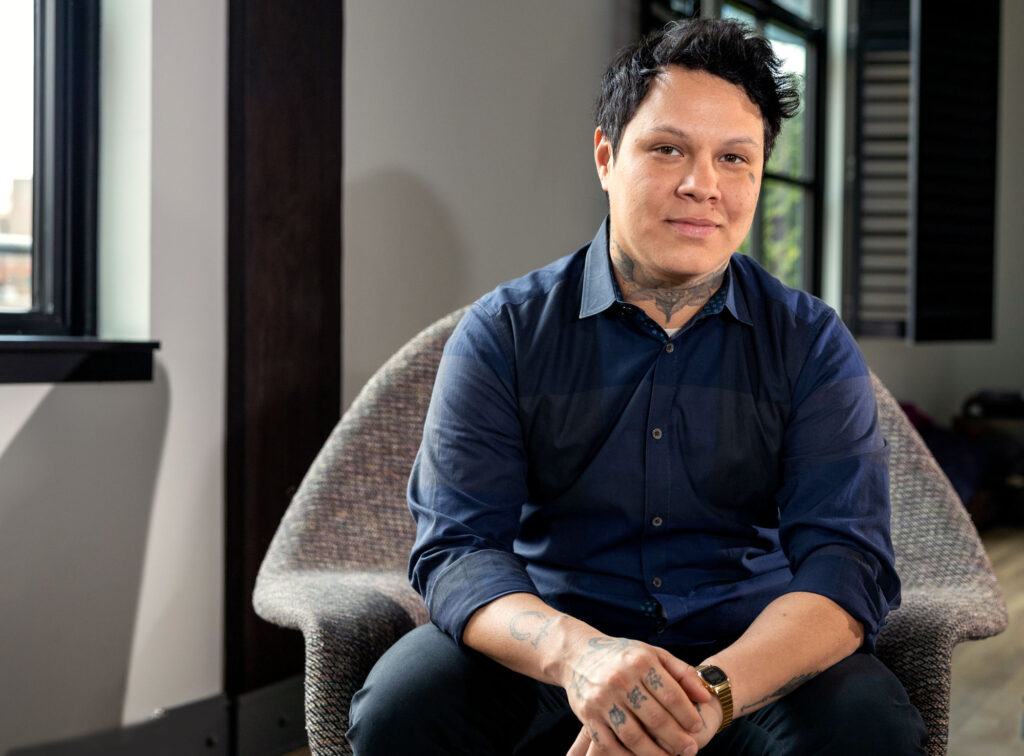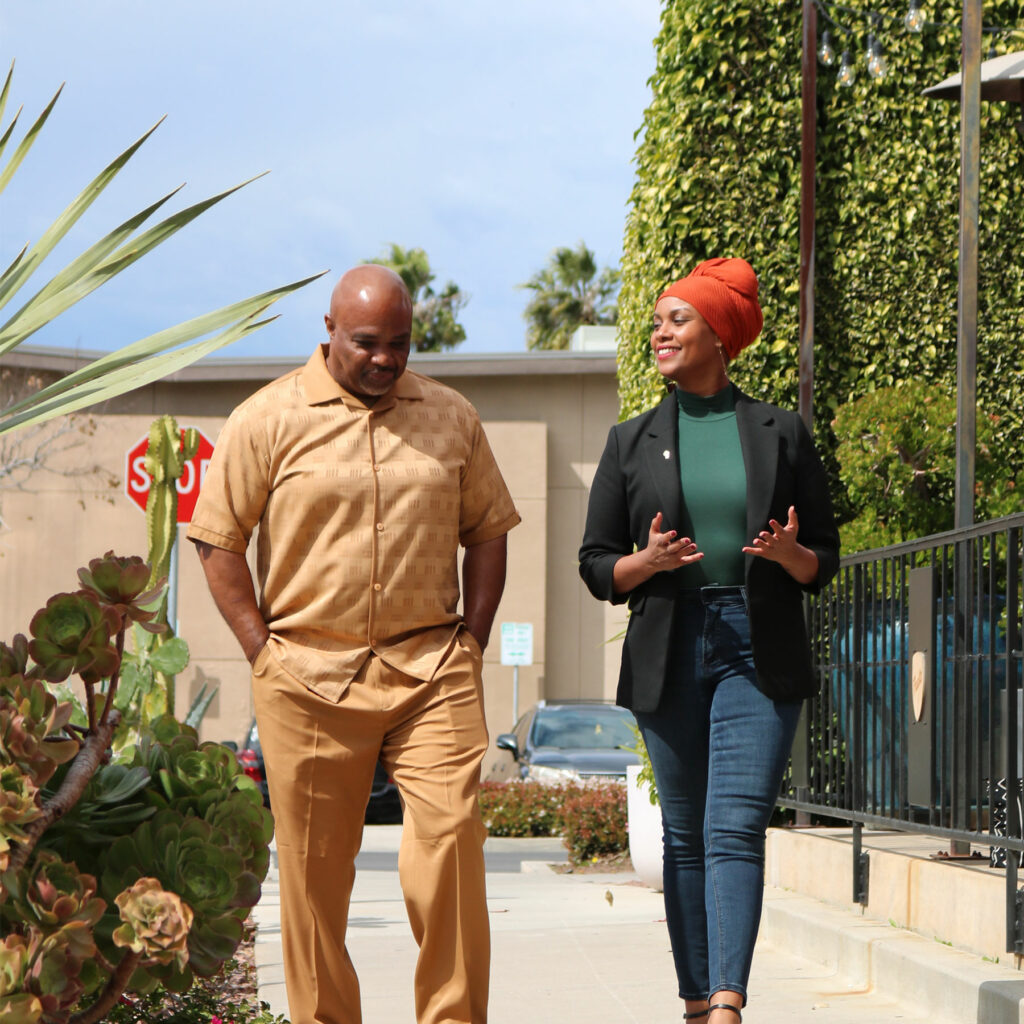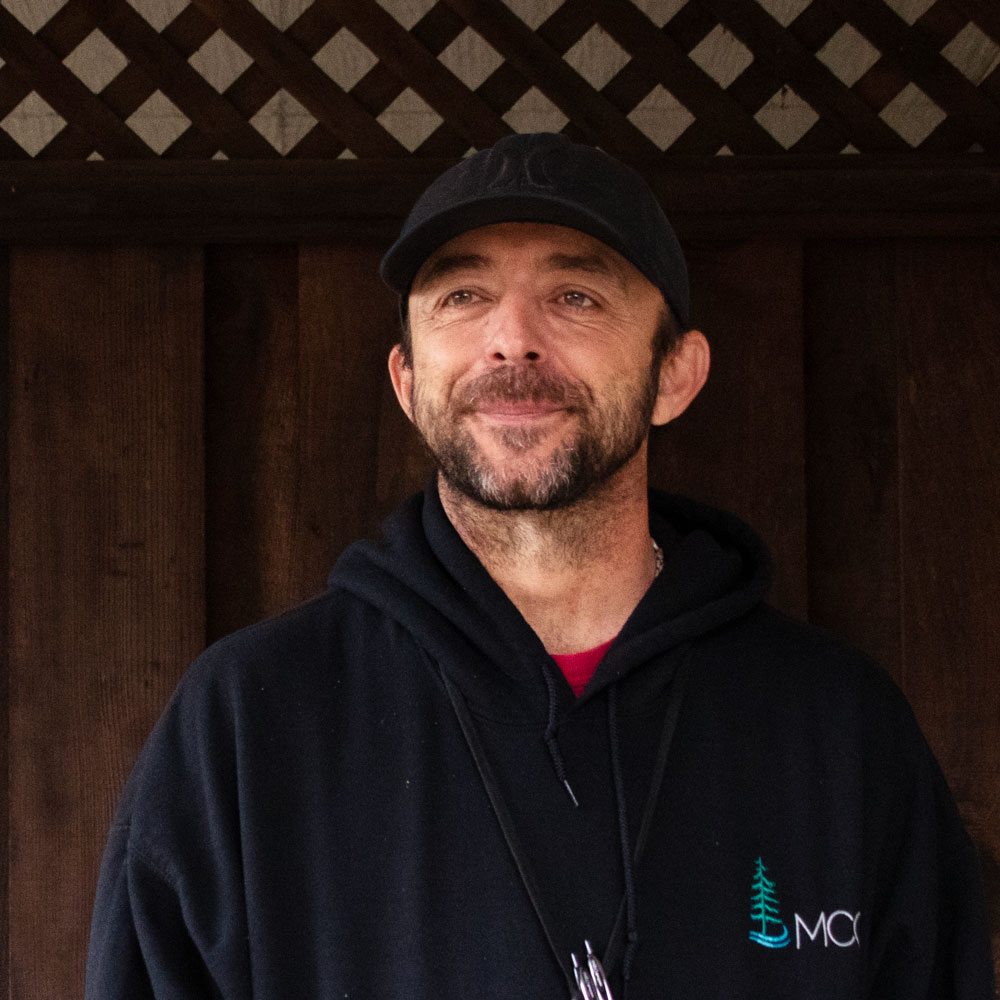Application Opens: Spring 2025
Learn More: amrf.org/apply
Total Initiative Amount: $250,000
Individual Grant Amount: $10,000
Who Should Apply?
The Arlene & Michael Rosen Foundation (AMRF) is issuing unrestricted funds for Black, indigenous, two-spirit, trans, gender non-conforming, and/or intersex (TGNCI) community leaders serving the state of Oregon. We are looking for organizations, projects, and Tribal Nations…
- that provide services or engage in advocacy in the state of Oregon that are designed specifically for two-spirit, trans, gender non-conforming, and/or intersex folks and their loved ones
- whose executive team, board, or leadership team includes Black and/or indigenous representation, and two-spirit, trans, gender non-conforming, and/or intersex representation
- whose budget is under $2 million

What is an AMRF GO Grant?
Inspired by the work of Headwaters Foundation, the AMRF General Operating (“GO”) Grant is a quick turnaround award of $10,000 in unrestricted funds. The entire premise of GO Grant is built on trust — there is no need for extensive applications, reports, or site visits. We trust your organization and know you’re making a positive impact! Learn more about our trust-based approach.
How do GO Grants work?
- Apply online in 10 minutes or less
- Applications are first-come, first-serve
- Instantly know if you meet the eligibility criteria
- Receive formal approval within 2-3 weeks
- Funds are rapidly distributed
Designing our next phase of GO Grants
To develop our GO Grant Strategy, we assembled an advisory team of BIPOC leaders who had provided or received services in Oregon. We also consulted with allies in the philanthropic sector to help us understand the funding landscape and develop a strategy to maximize the impact of these funds.
Why we’re launching in Oregon
Portland is often thought of as a bastion of progressive policy and a safe haven for queer and trans people. In 2023, headlines announced that Oregon had more LGBTQ+ residents than any state in the United States.1 As more states pass anti-trans laws, Portland will likely continue to be a refuge for trans and gender nonconforming (TGNC) people from across the country.
Despite its reputation, Portland is not always a safe or welcoming landing place for all people due to racism, redlining, and anti-Black and indigenous policies. In fact, Black people were explicitly banned by the Oregon black exclusion laws in the state’s constitution until 1926.2
This historic racism, paired with recent years of gentrification and rising housing costs, has led to a dramatic increase in rates of people experiencing homelessness. From 2022 to 2023, the number of people living unsheltered in Portland increased by 29%, according to the most current.“3
BIPOC and TGNC people are significantly over-represented in those living unsheltered. Black people are 3 times more likely than white people to be homeless in Oregon.4 In 2024 it was reported that “there are no LGBTQAI2S+ culturally specific emergency shelters in the Portland region. In addition, many local shelters are gendered (i.e., designated for men or women), which can result in discrimination and a lack of safety for trans and non-binary clients.”5
Why a TGNCI and BIPOC focus?
“only five US-based trans-focused and trans-led nonprofits have a budget of $1 million or more”
Alexander Lee, co-founder of the Transgender Gender-Variant & Intersex Justice Project (TGIJP) and project director for Grantmakers United for Trans Communities.
According to Alexander Lee, co-founder of the Transgender Gender-Variant & Intersex Justice Project (TGIJP) and project director for Grantmakers United for Trans Communities, only five US-based trans-focused and trans-led nonprofits have a budget of $1 million or more.6 This limits most trans-led organizations from receiving philanthropic funding from larger foundations, which tend to prioritize organizations with budgets over $1M. “Black and Latino CEOs/EDs are especially underrepresented at the executive level, (at 15% and 6%, respectively), and are more likely to lead the smallest organizations. The median revenue for Black-led nonprofits is $47,400 below that of white-led nonprofits—a $20 million funding gap.”7
What We’re Funding
AMRF recognizes and values that there are many aspects of community care that support an individual’s behavioral health and wellness. As such, our funding will be available to organizations providing holistic and comprehensive behavioral health services including mental health, substance use and other wellness supports. We recognize the importance of complementary services within the behavioral health sphere, such as educational and employment opportunities, legal and social services, supports for immigrants and refugees, peer support and resource navigation, mutual aid, harm reduction, gender-affirming services, birthing and parenting support, sexual health services, cultural healing & community support for all ages (youth, adults and seniors).
How to Apply
The application will launch in Spring of 2025 and is designed to be completed in 10 minutes or less. You’ll be asked about the services you provide, the demographics of your leadership team, and to provide an EIN number for your organization or that of your fiscal sponsor – unless you are applying on behalf of a federally recognized tribal nation.
You can also reach out to Whit Guerrero at [email protected] for more information.
- The Oregonian, Oregon has more LGBTQ+ residents per capita than any other state in the U.S., report ↩︎
- Mapping Inequality: Redlining in New Deal America ↩︎
- Do Good Multnomah, Portland’s Homelessness Crisis ↩︎
- Here Together Oregon, Understanding Homelessness ↩︎
- CAPNW, Portland’s Houseless-Services System is Failing LGBTQ+ People ↩︎
- Nonprofit Quarterly, “We Can’t Wait Anymore”: Trans Groups Fund the Grassroots ↩︎
- Candid, Empowering change: Black-founded nonprofits achieving impact with limited resources ↩︎


